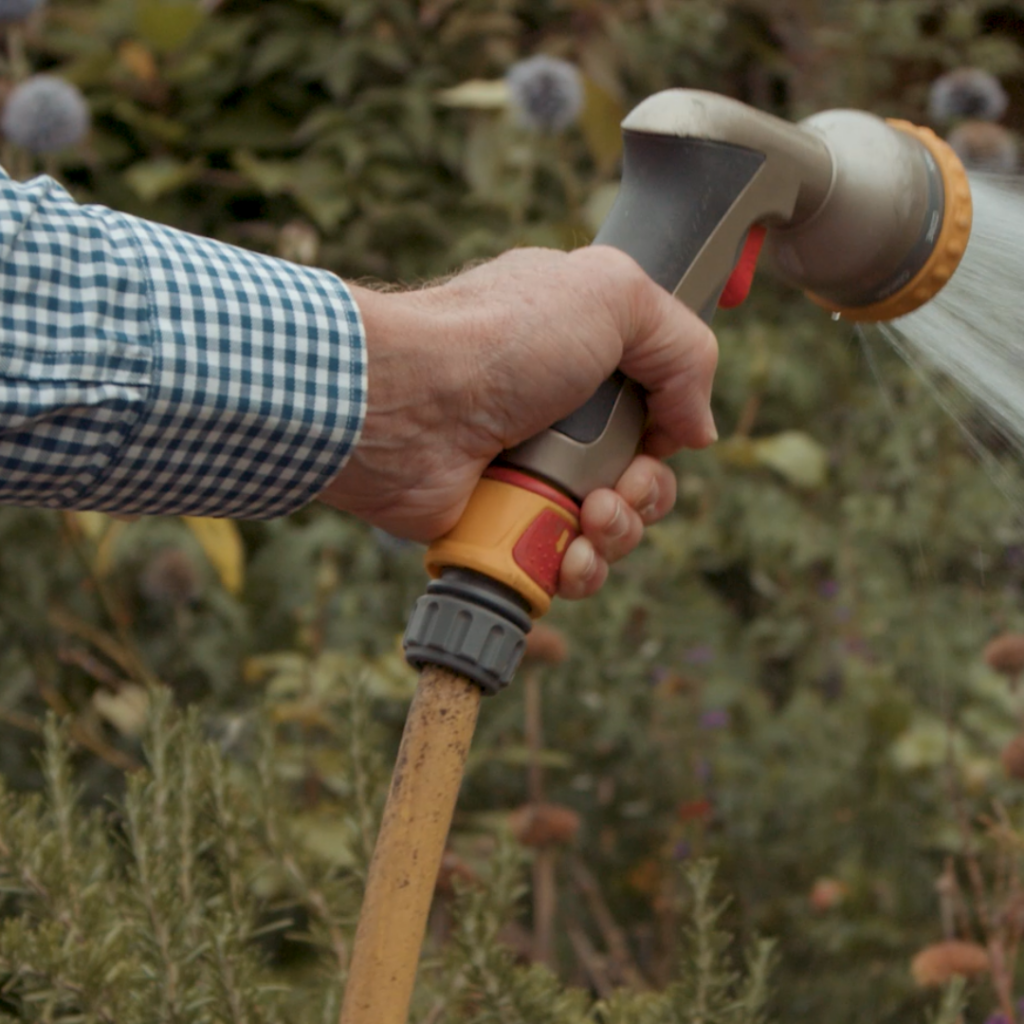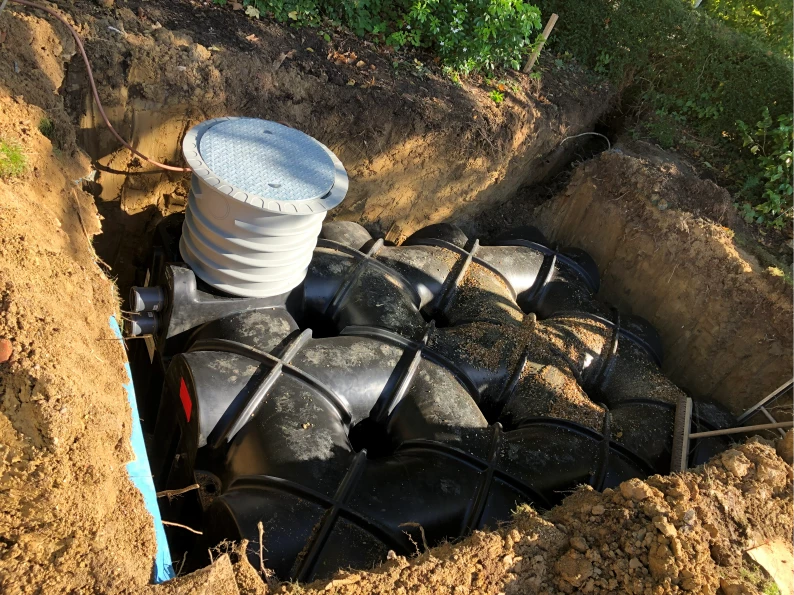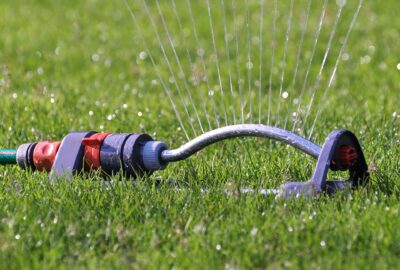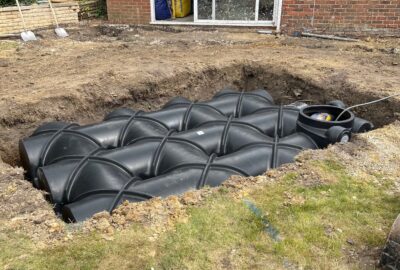Environment, Information
Why Water Reuse and Rainwater Harvesting Are Essential for UK Homes
As the UK faces growing concerns over water scarcity, flooding, and stricter sustainability standards, rainwater harvesting—a form of water reuse—is rapidly becoming a necessity rather than just an eco-friendly option. This essential water-saving solution helps conserve water, reduce flooding risks, and meet evolving planning regulations.
In this blog, we’ll explore why water reuse systems are now critical for UK homes, how they benefit property owners, and their role in mitigating surface water flooding.
Understanding Water Reuse: What is Rainwater Harvesting, and Why Is It Essential?
Rainwater harvesting is the collection and storage of rainwater from rooftops, used for non-potable needs like garden irrigation, toilet flushing, and laundry. As water shortages grow across parts of the UK—particularly in the south—harvesting rainwater has become an effective water reuse strategy that minimises reliance on mains water.
With climate change and urban development straining water resources, rainwater harvesting has shifted from a “nice-to-have” feature to a sustainable water management necessity for UK homes.
Top Reasons Why Water Reuse via Rainwater Harvesting is Critical
1. Water Scarcity is a Growing Concern in the UK
Although the UK is known for its rainy weather, many regions are experiencing water stress, especially in the south and southeast. Climate change and population growth are exerting pressure on water supplies, with forecasts predicting severe water shortages by 2050.
By adopting water reuse through rainwater harvesting, households can significantly reduce their mains water usage. For example, homeowners can use stored rainwater for everyday tasks like watering gardens and flushing toilets, reducing overall water consumption and household bills—a sustainable win for both the environment and the homeowner.
2. Meeting UK Planning Regulations and Sustainability Standards
Sustainable practices are central to modern urban planning, and water reuse is a straightforward way to meet UK planning requirements. Developers increasingly need to include water reuse systems that lower environmental impact, enhancing the sustainability of new homes.
Including rainwater harvesting in a development not only boosts sustainability credentials but also appeals to eco-conscious buyers. Projects featuring water-saving technologies like rainwater harvesting are more likely to gain planning approval, making this water reuse method an asset for developers.
3. Reducing Surface Water Flooding with Water Reuse Systems
Surface water flooding is an escalating problem in the UK, particularly in urban areas where impermeable surfaces prevent rain from soaking into the ground. During heavy rainfall, this can overwhelm drainage systems, leading to flash floods and infrastructure damage.
Rainwater harvesting systems offer a solution by capturing rain directly from rooftops before it can contribute to runoff. Reusing this rainwater reduces the volume entering storm drains, helping prevent surface water flooding—especially vital in urban settings where flood risks are high. When combined with other Sustainable Drainage Systems (SuDS), rainwater harvesting enhances flood resilience, lowering the risk of property damage.
Key Benefits of Water Reuse for UK Homeowners
1. Reduced Water Bills
One of the top benefits of rainwater harvesting is the potential to cut water costs. Using harvested rainwater for non-potable purposes significantly reduces mains water consumption, lowering household bills. For homes with large gardens or high-water use, these savings can be substantial.
2. Higher Property Value
Properties with sustainable features, including rainwater harvesting systems, attract environmentally-conscious buyers. With the growing demand for eco-friendly homes, properties with rainwater harvesting systems stand out and may command higher resale values in the market.
3. Lower Carbon Footprint
Rainwater harvesting also reduces energy consumption needed for water treatment and distribution, lowering a homeowner’s carbon footprint and supporting climate change efforts.
4. Enhanced Drought Resilience
As climate change increases the likelihood of summer droughts, homes equipped with rainwater harvesting systems become more resilient. Homeowners can store water during rainy periods and use it during dry spells, ensuring gardens remain lush even when water restrictions are in place.
Rainwater Harvesting and Water Reuse: Necessities for Future-Proof UK Homes
The importance of rainwater harvesting and water reuse in sustainable home design cannot be overstated. As water scarcity, stricter planning regulations, and flooding risks rise, rainwater harvesting is an essential, cost-effective solution for the UK.
By reducing dependence on mains water, meeting sustainability standards, and contributing to flood prevention, rainwater harvesting has become essential. Homeowners, developers, and architects should integrate these systems to future-proof homes against the challenges ahead.
Conclusion: Why Water Reuse and Rainwater Harvesting are Essential for Every UK Home
From reducing water bills and enhancing property value to mitigating surface water flooding and supporting planning compliance, water reuse through rainwater harvesting offers numerous advantages.
As the UK’s water challenges intensify, installing rainwater harvesting systems is a proactive step towards sustainable, resilient homes.
Whether you’re a homeowner aiming to cut water costs, a developer meeting sustainability goals, or an architect committed to flood prevention, rainwater harvesting is a smart, essential investment in the UK’s water-efficient future. Start your water reuse journey today and contribute to a more sustainable UK.









